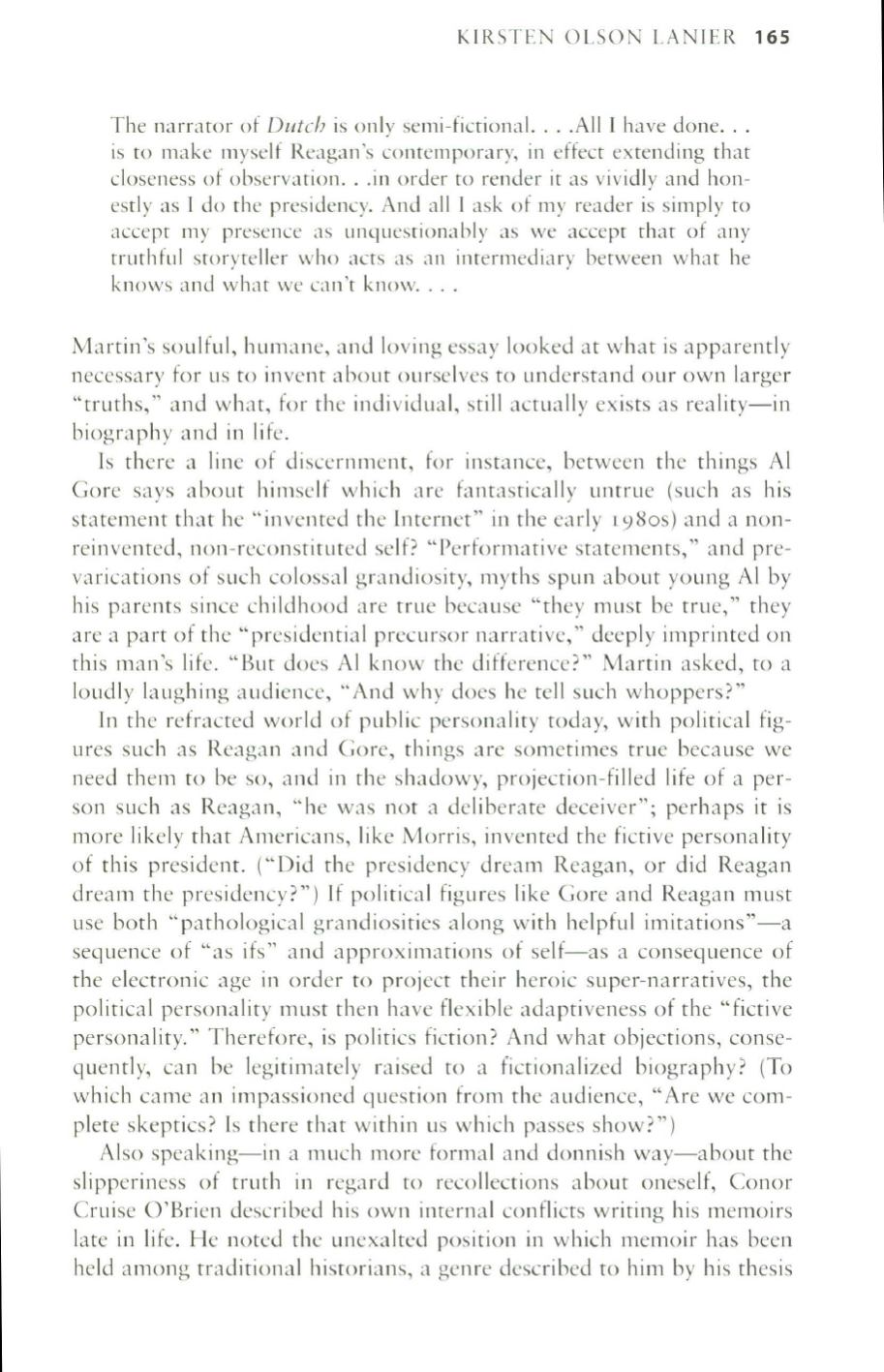
KIRSTEN OLSON LANIER
165
The narrator of
Dutch
is only semi-fictional. ...AII I have done ...
is
to
make myself Reagan's contemporary, in effect extending that
closeness of observation ... in order to render it as vividly and hon–
estly as I do the presidency. And all I ask of my reader is simply to
accept my presence as unquestionably as we accept that of any
truthful storyteller who acts as an intermediary between what he
knows and what we can't know....
Martin's soulful, humane, and loving essay looked at what is apparently
necessary for us
to
invent about ourselves
to
understand our own larger
"truths," and what, for the individual, still actually exists as reality-in
biography and in life.
Is there a line of discernment, for instance, between the things Al
Gore says about himself which are fantastically untrue (such as his
statement that he "invented the Internet" in the early 1980s) and a non–
reinvented, non-reconstituted self? "Performative statements," and pre–
varications of such colossal grandiosity, myths spun about young Al by
his pa rents si nee ch ild hood a re true beca use "they must be true," they
are a part of the "presidential precursor narrative," deeply imprinted on
this man's life. "But docs Al know the difference?" Martin asked, to a
loudly laughing audience, "And why does he tell such whoppers?"
In
the refracted world of public personality today, with political fig–
ures such as Reagan and Gore, things are sometimes true because we
need them
to
be so, and in the shadowy, projection-filled life of a per–
son such as Reagan, "he was not a deliberate deceiver"; perhaps it is
more likely that Americans, like Morris, invented the fictive personality
of this president. ("Did the presidency dream Reagan, or did Reagan
dream the presidency?") If political figures like Gore and Reagan must
use both "pathological grandiosities along with helpful imitations"-a
sequence of "as ifs" and approximations of self-as a consequence of
the electronic age in order to project their heroic super-narratives, the
political personality must then have flexible adaptiveness of the "fictive
personality." Therefore, is politics fiction? And what objections, conse–
quently, can be legitimately raised
to
a fictionalized biography? (To
which came an impassioned question from the audience, "Are we com–
plete skeptics? Is there that within us which passes show?")
Also speaking-in a much more formal and donnish way-about the
slipperiness of truth in regard
to
recollections about oneself, Conor
Cruise O'Brien described his own internal conflicts writing his memoirs
late in life. He noted the unexalted position in which memoir has been
held among traditional historians, a genre described to him by his thesis


